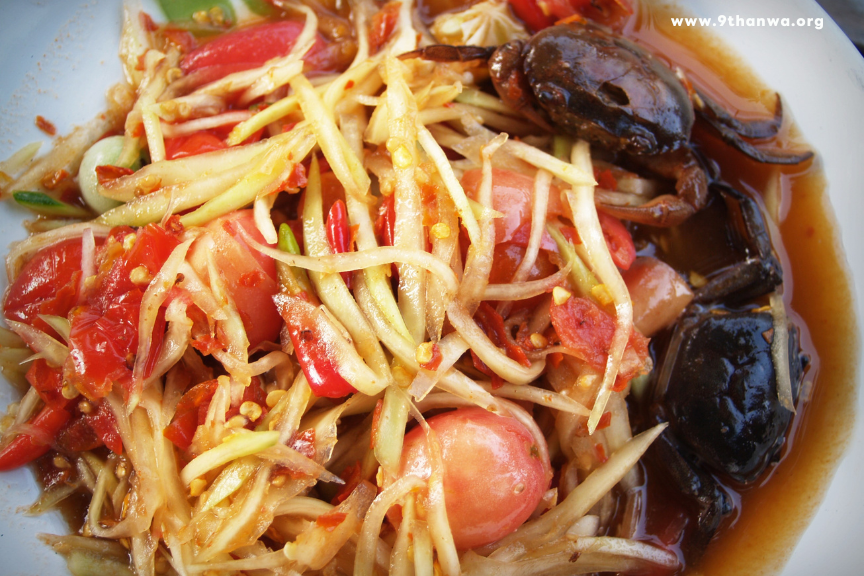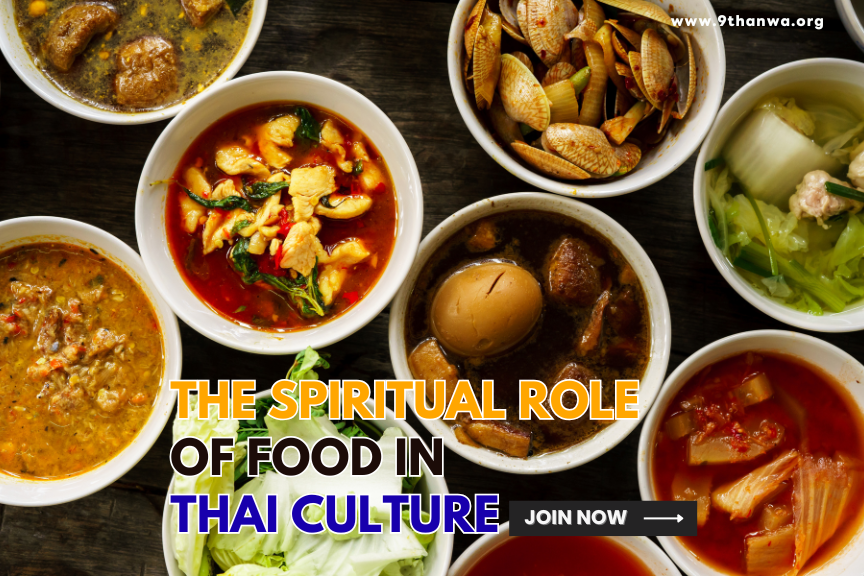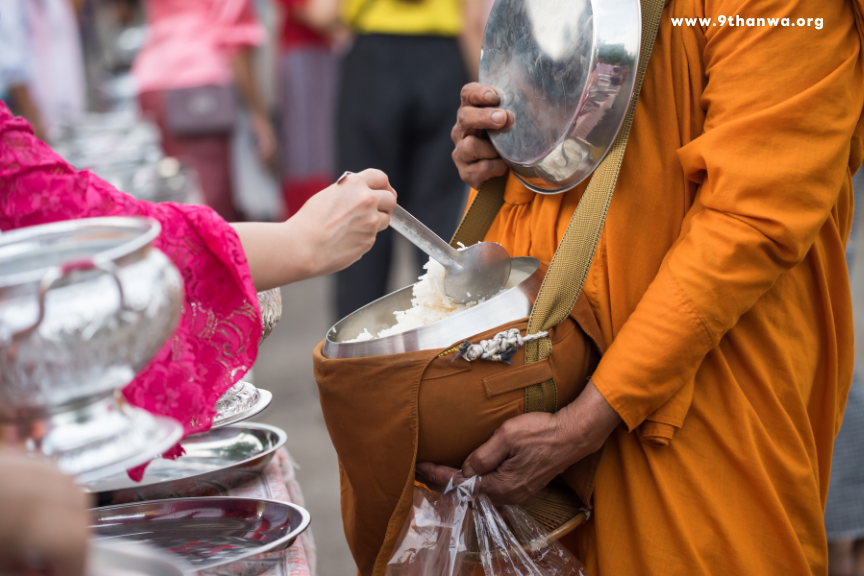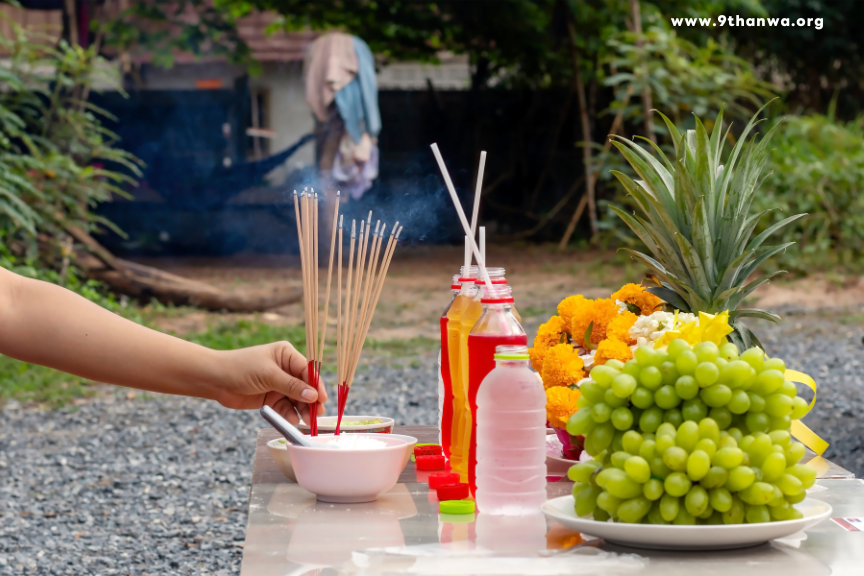🍽️ The Spiritual Role of Food in Thai Culture – Nourishing the Body and Soul
In Thailand, food is much more than just sustenance — it’s an integral part of spiritual practice and cultural tradition. Thai cuisine is filled with symbolic meanings and rituals that go beyond the taste buds. From offering food to monks, to the symbolic importance of certain dishes during Thai New Year and other festivals, food plays a crucial role in Thai spirituality and daily life.
This article will explore how food serves a spiritual purpose in Thai culture and how it connects the body, mind, and soul in ways that are often unseen but deeply felt.
🍚 1. Offering Food to Monks: The Gift of Merit
One of the most well-known spiritual practices in Thailand is the offering of food to monks. This ritual is a way for Thai people to show respect, gain merit, and cultivate generosity. The act of giving food to monks is a daily tradition, especially early in the morning when monks walk through the streets with their alms bowls.
-
Spiritual Purpose: Offering food to monks is believed to bring good karma and spiritual merit to the giver. By providing food, the giver can earn blessings and purify their intentions.
-
Connection to Buddhism: This ritual is deeply tied to the teachings of Buddhism, where offering is seen as a way to detach from material desires and focus on the spiritual journey.
🍛 2. Symbolic Dishes During Thai New Year (Songkran)
During the Thai New Year, known as Songkran, food takes on symbolic importance as people prepare dishes that represent good fortune, prosperity, and the clearing of negative energy. Traditional dishes served during Songkran have deep cultural significance:
-
Khao Chae (rice soaked in cool jasmine-scented water): Symbolizes refreshing and purification.
-
Som Tum (green papaya salad): Represents strength and health, and is believed to ward off evil spirits.
-
Pad Thai: A dish that symbolizes good luck and new beginnings.
-
Sticky Rice with Mango: Represents abundance and sweetness in life.
These foods are not just eaten for enjoyment — they are believed to bring positive energy and align one’s spirit with the flow of the new year.

🍲 3. Food as a Tool for Spiritual Cleansing
In Thai culture, certain foods and herbs are thought to have the power to cleanse the body and ward off bad luck. For instance, many Thai herbs like lemongrass, kaffir lime, and turmeric are used in spiritual cleansing rituals because of their purifying qualities.
-
Herbal Remedies: In traditional Thai medicine, herbal teas and soups are often prescribed to cleanse the body and protect the spirit.
-
Cleansing Rituals: During important festivals or life transitions, Thai people may prepare specific foods that are meant to clear negative energy and attract positive spiritual forces.
🍴 4. Food and Respect for Ancestors
In Thai culture, food is often used in rituals that honor ancestors and spiritual beings. Ching Cheng (food offerings) are made at altars or during ceremonies to show respect and gratitude to the spirits of ancestors and deities.
-
Spiritual Connection: Offering food to ancestors symbolizes the continuous connection between the living and the dead. It is a way of showing respect for the spiritual guidance they provided in life and asking for blessings for the future.
-
Food Offerings: Thai people place fruits, sweet dishes, rice, and tea at altars, accompanied by prayers or chants.
🌿 5. Mindful Eating: The Importance of Gratitude
In Thai Buddhism, mindful eating is an important practice. The act of eating with gratitude is seen as a way to express respect for the food and the life it nourishes. Thai people often say a blessing before meals as a way of acknowledging the effort that went into preparing the food and giving thanks for it.
-
Expression of Gratitude: The prayer “Eao na eek sook” is often said, meaning “May this food nourish us and bring us peace”.
-
Conscious Consumption: Mindful eating involves being present while eating, appreciating each bite, and connecting with the food on a spiritual level.
🍽️ 6. Food in Thai Healing Practices
In addition to its role in rituals and offerings, food also plays an important role in healing practices. Many Thai dishes and herbal concoctions are believed to promote physical and spiritual healing.
-
Thai Herbal Medicine: Dishes made with turmeric, ginger, lemongrass, and garlic are believed to strengthen the immune system, improve digestion, and restore balance in the body.
-
Energy Cleansing: Certain foods are used to recharge energy, such as rice soup (known as khao tom), which is believed to soothe the body and restore vitality.
✨ Final Thoughts
In Thai culture, food is not just about nourishment — it’s a spiritual practice that connects the body, mind, and soul. From the offerings made to monks to the symbolic dishes of Thai New Year, food plays an integral role in spiritual well-being and cultural identity. By understanding the spiritual importance of food, we can deepen our connection to Thai traditions and embrace the holistic healing that food offers.
Explore more about spiritual practices, cultural traditions, and healing with Thai herbs at 9thanwa.org.


